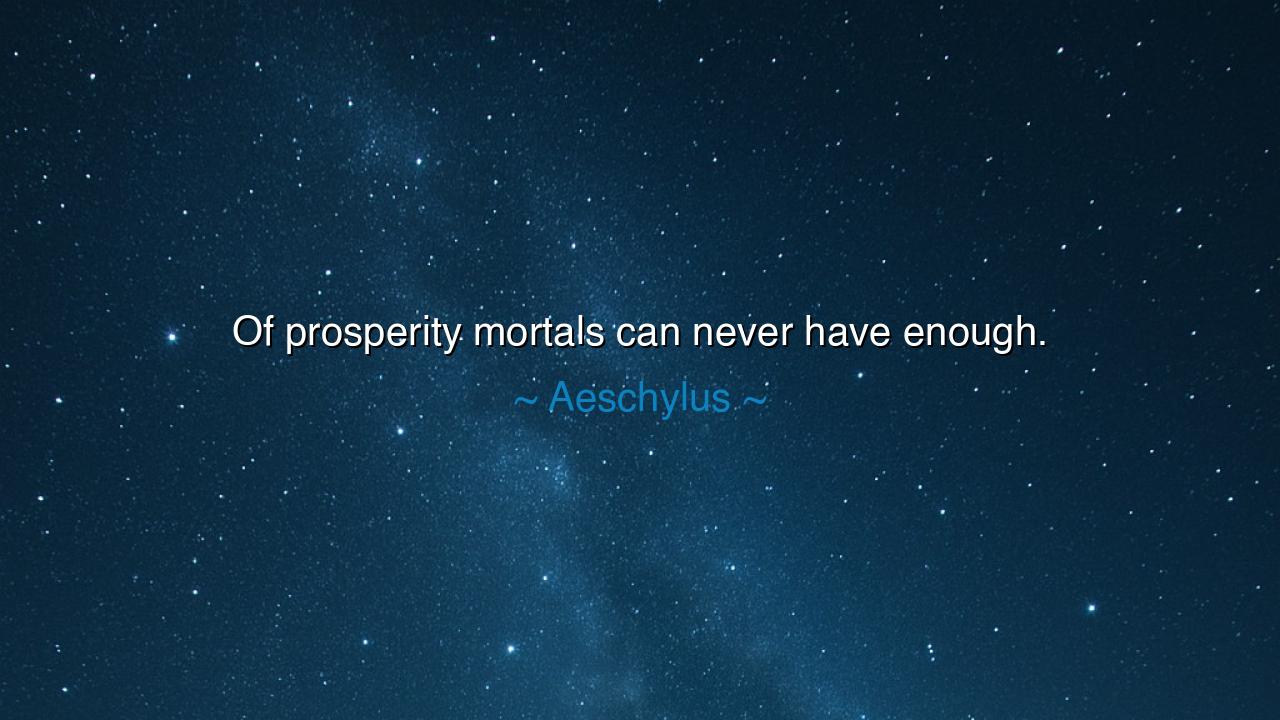
Of prosperity mortals can never have enough.






The ancient tragedian Aeschylus, whose plays revealed the depths of the human soul, once declared: “Of prosperity mortals can never have enough.” These words speak to a truth as old as humankind itself—that the desire for abundance, comfort, and triumph is a fire that burns endlessly within the human heart. Prosperity, in its essence, promises safety and joy, yet when pursued without measure, it becomes a chain that binds the spirit, driving men and women into an unquenchable thirst for more.
To desire prosperity is natural, for it brings food to the hungry, shelter to the weary, and peace to troubled lands. Yet the tragedy Aeschylus unveils lies in the never enough. Mortals, when given wealth or power, often find their satisfaction fleeting. What seemed a great blessing soon becomes ordinary, and the heart reaches outward again, demanding greater treasures, higher honors, and richer comforts. Thus, what begins as a noble striving can turn into insatiable greed, blinding the soul to gratitude and harmony.
History provides a powerful example in the story of King Midas. When granted the fabled “golden touch,” Midas believed he had achieved ultimate prosperity. Yet his gift became a curse, turning even food and loved ones into lifeless gold. His tale reveals the peril of unchecked desire: when the pursuit of wealth overshadows the joy of living, prosperity itself becomes destruction. Midas’s sorrow is the eternal echo of Aeschylus’s warning that mortals, in their hunger, often grasp until they lose what truly matters.
The empires of the past also bear witness to this truth. The mighty Roman Empire, at the height of its power, possessed riches and territories beyond imagining. But its endless expansion, driven by the thirst for prosperity, sowed corruption and decay within. Generals and senators sought more glory, more wealth, more dominion, until the very foundation of Rome crumbled beneath their ambition. In seeking to gain all, they lost all.
Let this teaching be passed to future generations: seek prosperity, but hold it lightly. It is a gift to be shared, not a god to be worshipped. True abundance is found not in endless accumulation, but in contentment, gratitude, and the wise stewardship of blessings. For as Aeschylus reminds us, the mortal heart may never cease to desire more, but the soul that learns to find joy in enough will taste a wealth greater than all the treasures of kings.






AAdministratorAdministrator
Welcome, honored guests. Please leave a comment, we will respond soon